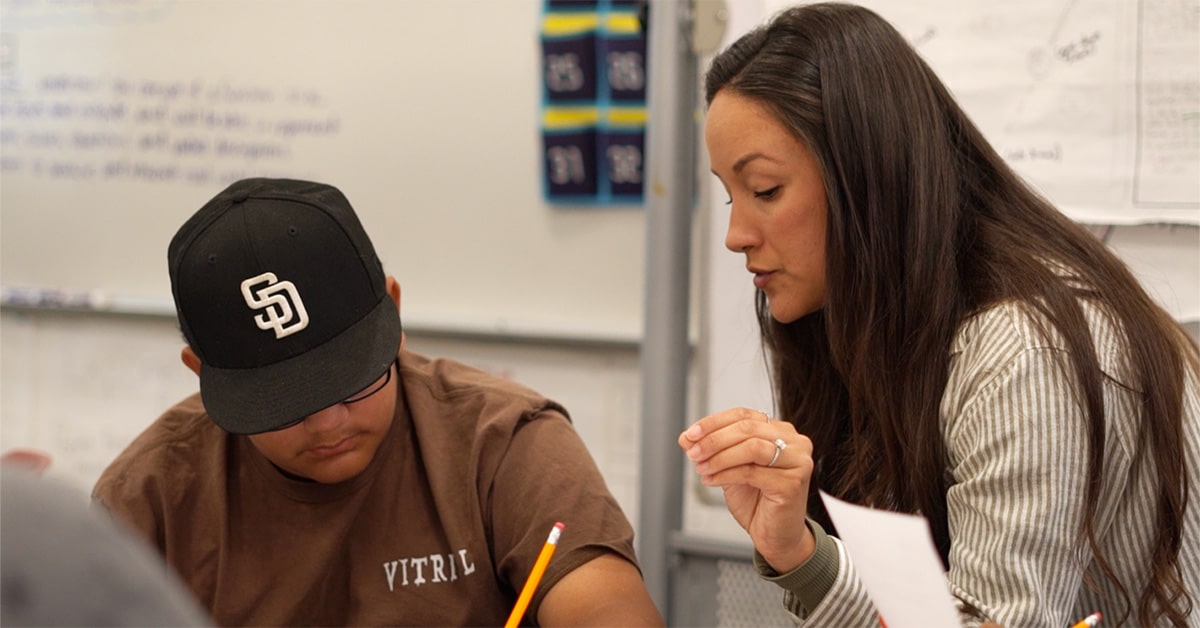
By
Reworks motivate students to master skills in classroom assessment and project work.
TAYA CHASE: A rework is when I ask a student to make revisions based on feedback I’ve given them. So for instance, if I give a student a test, I’m giving them comments on the work of what they haven’t quite mastered yet.
And with that feedback, the intention is for students to do the rework immediately so that it’s fresh in their mind what they need to fix. I think anyone who receives feedback wants to know what can I do more of. So tell me the things that I’m doing well in and what can I keep doing, and then what are the things that I need to revise.
The most important piece is having clear and explicit instructions on what the expectations for content mastery are for the student. The next step is to thoroughly give feedback. I personally think the most authentic form of feedback comes from students peers through peer critique. Students tend to be more motivated when their peers are telling them what they can work on and what they can revise, and then with that, setting the expectation of what is it that you want to see in those revisions.
And I think anyone can try this on. It’s as simple as outlining a rubric on what your expectations are, how students can meet them or exceed them, and then laying out and giving a space for students to make the revisions.
It also is a perfect segue for differentiation because it’s really important for all students to do revisions. It’s not just the students who might have failed the exam or assessment or project piece. This is for all students to get better, to make progress, to grow, to learn and master the content.